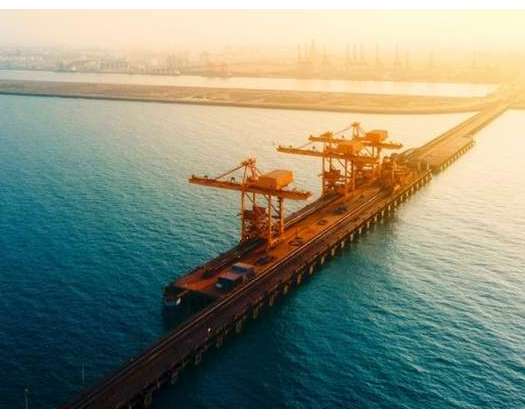A recent crackdown by U.S. Customs and Border Protection on customs brokers managing billions of dollars in low-cost online orders from companies like Shein and Temu, which are linked to China, is expected to lead to shipping delays and congestion, according to industry analysts.
Last week, U.S. Customs and Border Protection announced the suspension of "multiple" brokers from an expedited clearance program for duty-free imports directly to consumers, citing concerns about potential smuggling. Although the agency did not disclose the exact number, experts in the customs field indicated that up to six companies may have been suspended.
This action is part of a broader initiative by CBP, which involves heightened scrutiny of packages at U.S. airports and a review of electronic data submitted by customs brokers.
Chad Schofield, co-founder of BoxC, a U.S.-based e-commerce logistics platform, stated, "All entry points are impacted, so delays are inevitable."
The crackdown coincides with a surge in the number of packages expected to reach the U.S. this year, with over 1 billion parcels, averaging $50 in value, projected to arrive. This increase is being driven by strong consumer demand for fast-fashion products manufactured in Chinese factories, among other factors.
E-commerce giants Shein and Temu heavily rely on the expedited clearance process, exclusively available for shipments valued at $800 or less, as they strive to expand their market share before their anticipated public debut. To expedite the processing, U.S. brokers handling these packages electronically submit shipping information to CBP, effectively streamlining the entire procedure.
According to Cindy Allen, the CEO of Trade Force Multiplier LLC, customs brokers participating in this program handle clearance for a significant 62 percent of these shipments. This relieves exporters and transportation firms from the administrative burden that would otherwise be placed on them.
While Shein could not be reached for immediate comment, Temu confirmed that their operations remained unaffected by these developments.
Brandon Fried, the executive director of the Airforwarders Association industry group, highlighted that the CBP's recent actions were influenced by the intense political pressure faced by the Biden administration during an election year. The aim was to safeguard U.S. businesses and curtail the influx of illegal drugs into the country.
Some U.S. legislators argue that the regulations permitting duty-free imports on items valued below $800 give an unfair advantage to e-commerce companies in China and other countries over local retailers. They also criticize the government for not taking sufficient action to address the nation's fentanyl crisis.
CBP announced last week that the data entries of certain brokers were suspended due to "unacceptable compliance risk" and that individuals were exploiting the rules to traffic contraband, including substances used in the production of drugs like fentanyl.
The agency did not disclose the identities of the customs brokers involved.
One of the impacted entities, SEKO Logistics based in Illinois, filed a lawsuit against CBP in the U.S. Court of International Trade on Saturday, alleging that the agency did not provide proper notification of the suspension, specify the purported violations, or offer a means to rectify the situation.
SEKO informed Business Insider in January 2023 that it was responsible for managing transportation for Shein and various other e-commerce clients. The specifics of whether SEKO handled electronic customs filings for Shein were not disclosed.
According to SEKO, CBP suspended the company from the Customs Trade Partnership Against Terrorism security program. This certification is required by many Fortune 500 companies for their vendors.
SEKO announced on Tuesday that they had successfully obtained conditional reinstatements for both programs from CBP.
SEKO CEO James Gagne expressed disappointment and disagreement with CBP's initial decision on Tuesday. He emphasized that the company maintained a compliance rate of "99.999+ per cent" in the expedited clearance program.
UPS and DHL Express are among the companies participating in the program who confirmed that they had not faced any suspensions.









